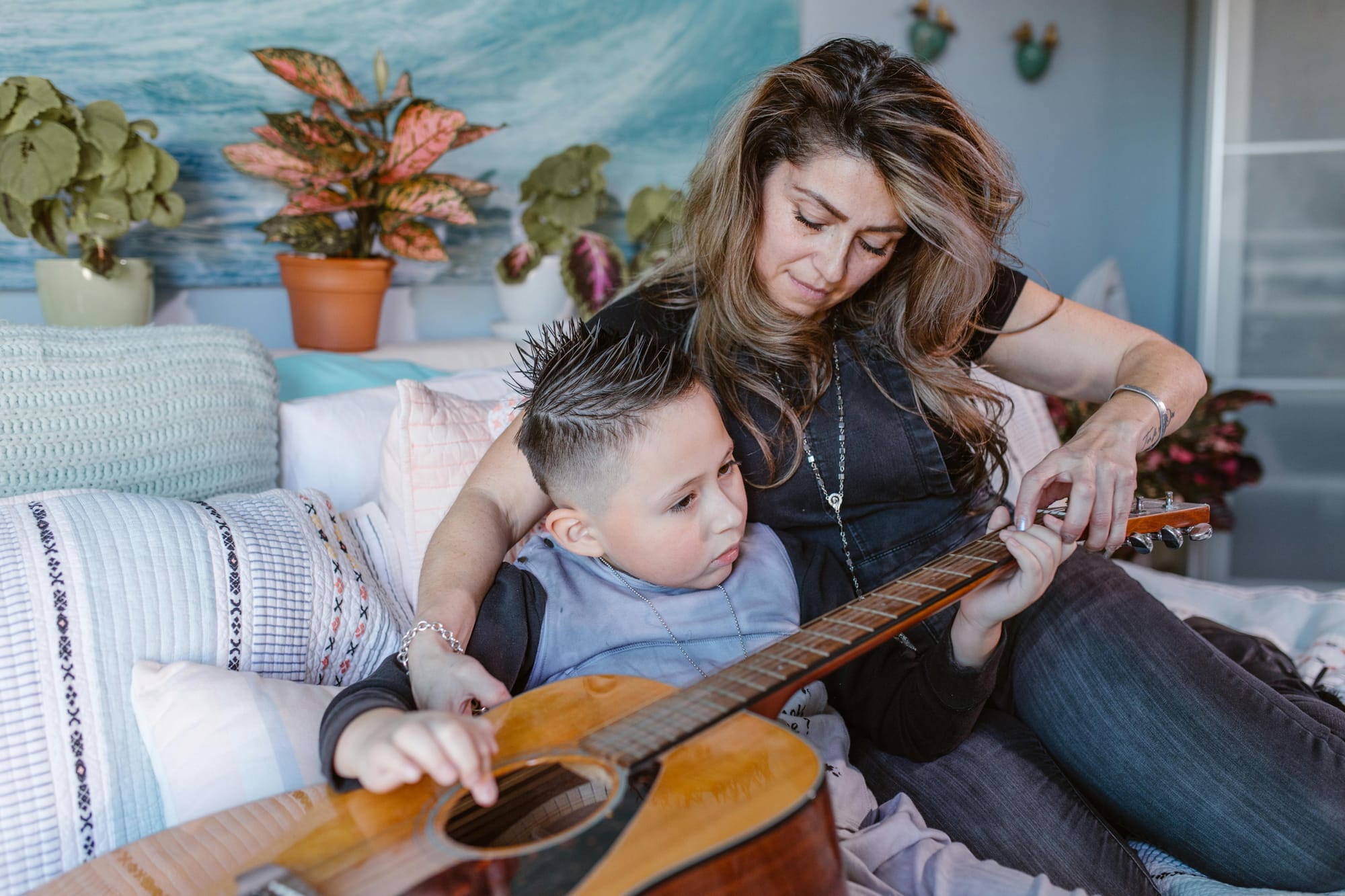Inspiring the Next Generation of Musicians: A Guide for Music Teachers

As a music teacher, your role transcends the simple transfer of knowledge. You’re shaping the lives of young musicians, instilling a passion for rhythm, melody, and creativity. Here’s how to inspire, educate, and connect with your students to foster a lifelong love for music.
1. Incorporate Technology into Lessons
In today’s digital world, technology can play a huge role in teaching music. Apps like GarageBand, Noteflight, and SmartMusic can make music creation and practice more engaging. Virtual instruments and recording software open up new possibilities for creativity, helping students explore music in ways that weren’t possible before. Using tech in the classroom can also connect with tech-savvy students, making the learning experience feel more relevant.
2. Diversify Musical Genres
While classical music is often the backbone of music education, introducing students to a variety of genres can ignite a deeper interest. Incorporate jazz, blues, rock, pop, and even world music to broaden their understanding and appreciation of music’s diversity. Let students explore these genres, and you may find them more eager to experiment with their own sound.
3. Connect Music to Emotion
One of the greatest powers of music is its ability to evoke emotion. Teaching students how to express themselves through music can make their lessons more personal and meaningful. Encourage them to reflect on how different pieces of music make them feel and how they can convey emotions through dynamics, tempo, and phrasing in their own performances.
4. Focus on Performance Confidence
Many students struggle with stage fright or performance anxiety. As a music teacher, helping them overcome these obstacles is key. Organize regular, low-pressure performance opportunities in the classroom or at school events. Teach relaxation techniques, breathing exercises, and visualization to help students build the confidence needed to perform in front of an audience.
5. Foster Creativity with Composition and Improvisation
Incorporating composition and improvisation into your lessons allows students to explore their own musical voices. Start with simple exercises like composing short melodies or experimenting with improvisation over a chord progression. These activities will teach them to think outside the box and develop their own unique musical ideas, rather than simply following sheet music.
6. Create a Positive and Supportive Environment
A music classroom should be a space where students feel safe to explore, make mistakes, and grow. Encourage a positive, non-judgmental environment where every student feels valued, regardless of their skill level. Celebrate progress, no matter how small, and offer constructive feedback that builds confidence rather than discouraging.
7. Incorporate Group Work and Ensemble Play
Learning music together is a great way to build camaraderie and teamwork. Whether through duets, trios, or larger ensembles, students learn to listen, collaborate, and support one another in group settings. Ensemble work also provides a sense of community and shared achievement when a performance comes together, further deepening their connection to music.
8. Inspire through Storytelling
Music history is rich with stories of composers, musicians, and their works. Sharing these stories can make the subject come alive for your students. Tell the tale of Beethoven composing while losing his hearing, or how jazz legends like Louis Armstrong broke boundaries and changed music forever. Stories help students see that even the greatest musicians faced struggles and that they, too, can achieve greatness with perseverance.
9. Adapt to Individual Learning Styles
Every student learns differently. Some may excel through auditory learning, while others may need visual aids or hands-on practice. Take time to understand each student’s unique needs and adapt your teaching methods accordingly. Whether you use visual charts, play audio examples, or engage in one-on-one coaching, being flexible will help each student progress in their own way.
10. Be a Lifelong Learner
As a music teacher, your own learning journey never truly ends. Stay up-to-date with new teaching methods, technologies, and musical trends. Attend workshops, collaborate with fellow teachers, and continue improving your own musical skills. Your passion for growth and learning will inspire your students to follow in your footsteps.
Final Thoughts
Music education is about much more than scales and arpeggios. It’s about inspiring creativity, building confidence, and fostering a deep connection with the art form. As a music teacher, you hold the power to shape the next generation of musicians, helping them find their unique voices and passions. Embrace the opportunity to inspire, and you’ll leave a lasting impact on your students’ lives.

